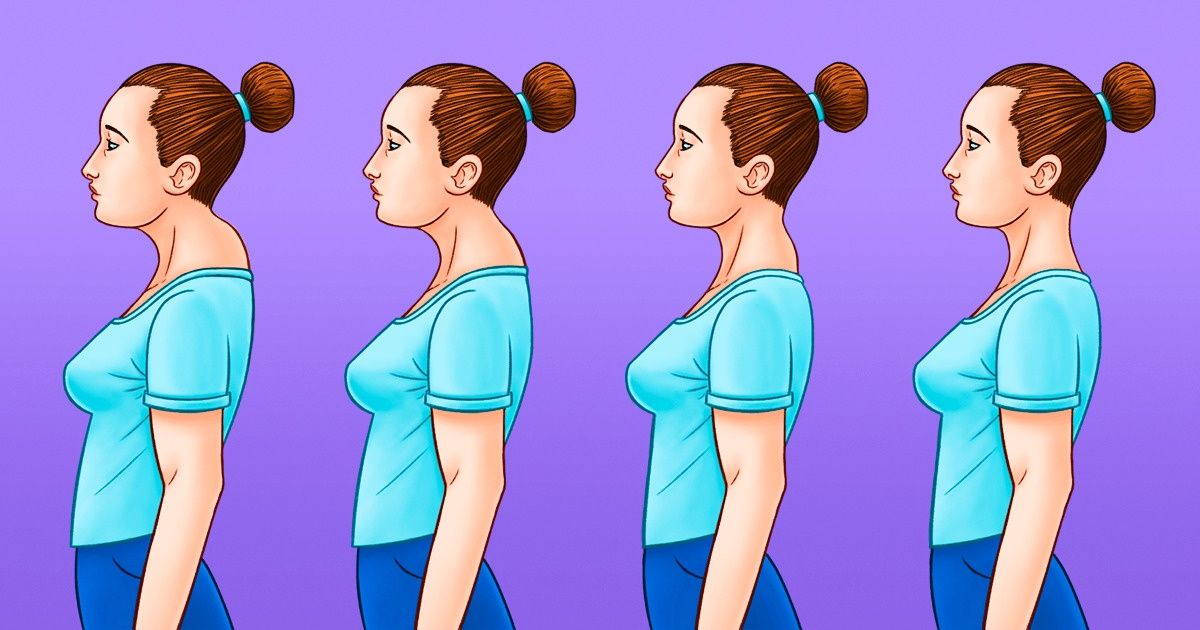Hunch Back (a.k.a. Kyphosis)

Our spines have a natural curvature. These curves help us to stand upright and stay balanced while doing so. If any one of the curves becomes too large or too small, it becomes difficult to stand up straight, and our posture appears abnormal.
Sometimes, when the angle of the spine is out of the typical range the curve gets to be too great. This is called Kyphosis or commonly, Hunchback. The condition can vary in seriousness. Generally speaking, the greater the curve of the spine, the more severe the symptoms are.
The symptoms of kyphosis can include:
- rounded shoulders or a hump on your back
- headaches
- dizziness
- trigeminal neuralgia- like symptoms
- back pain or stiffness
- feeling tired or fatigued
- tight hamstrings
Although rare, more severe symptoms can occur as the spine continues to curve over time and compress other parts of the body, such as the lungs, nerves, and digestive tract.
Severe complications of kyphosis can include:
- persistent back pain
- increased trouble with physical tasks such as walking, looking upwards, or getting up from a sitting position
- feelings of numbness or tingling in the legs
- shortness of breath or trouble breathing
- digestive issues, such as trouble swallowing or acid reflux
- problems with control of the bladder or bowels
What causes kyphosis?
A variety of factors can lead to the development of kyphosis. They include:
Poor posture
Poor posture can include things like:
- slouching or hunching, such as at a computer, tablets, laptop computers, or in front of a TV
- working on or time on the cell phone
- leaning back in chairs
- carrying heavy loads on your back, such as a backpack full of books
Spinal injuries
Some spinal injuries, such as fractures, can damage the spine and affect its curvature.
Aging
Curvature of the spine begins to increase naturally with age.
In addition to bone and spinal conditions, other factors that naturally occur with aging can contribute to the development of kyphosis, including:
- Decreased mobility. This can affect the muscles and ligaments in the back as well as posture and positioning.
- Muscle strength. Studies have reported that weakened back muscles, specifically the spinal extensors, are correlated with an increased kyphosis angle in women older than 60.
- Sensory changes. Decreased input from the senses, which can include things like vision, touch, and spatial awareness, can also affect posture and positioning of the head or neck.
Developmental conditions
Sometimes kyphosis can occur as a congenital condition. This happens if the spine doesn’t develop properly prior to birth.
Kyphosis can also occur when the spine doesn’t develop properly during a growth spurt. This is called Scheuermann’s kyphosis. Instead of rectangular-shaped vertebrae, people with this condition have vertebrae that are more triangle-shaped. This causes increased spinal curvature.
Conditions affecting the bones or spine
Underlying bone or spinal conditions can also lead to kyphosis, particularly in older populations. Some examples of these conditions include degenerative disk disease and osteoporosis.
Cancer
Although rare, cancer of the spine can lead to weakening of the vertebrae, possibly contributing to kyphosis. Additionally, chemotherapy and radiation treatments for cancer can have a similar effect.
Treatment
In Omaha, Green Chiropractic is one of the only clinics which can reshape hunchbacks, buffalo hump, kyphosis. When you enter Green Chiropractic, you will see equipment not seen in other offices that help to reshape these hunchbacks, buffalo humps, and kyphosis’. Simply standing up straight will not correct hunchbacks, unfortunately. Due to gravity and Wolf’s Law (when loading on a bone increases, the bone will remodel itself over time to become stronger to resist that sort of loading). Weight loss back help the fat around a buffalo hump but will not reshape the underlying hunchback/kyphosis.
If you are concerned about your hunchback or kyphosis call Green Chiropractic at 402-933-5392
